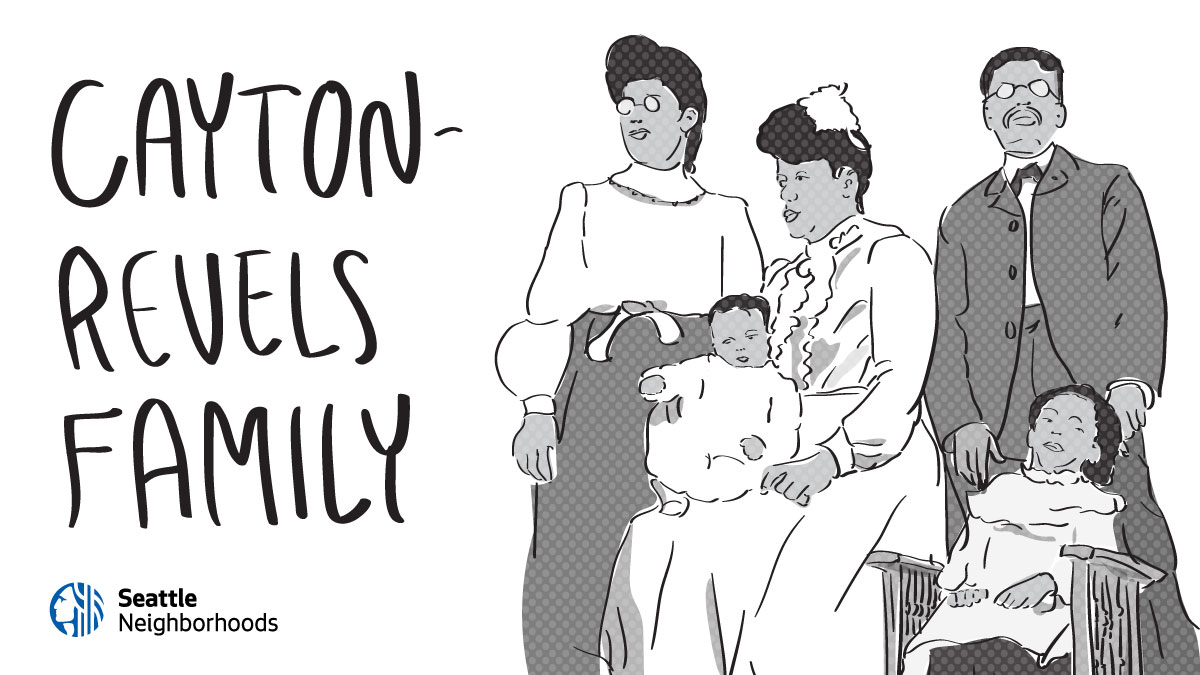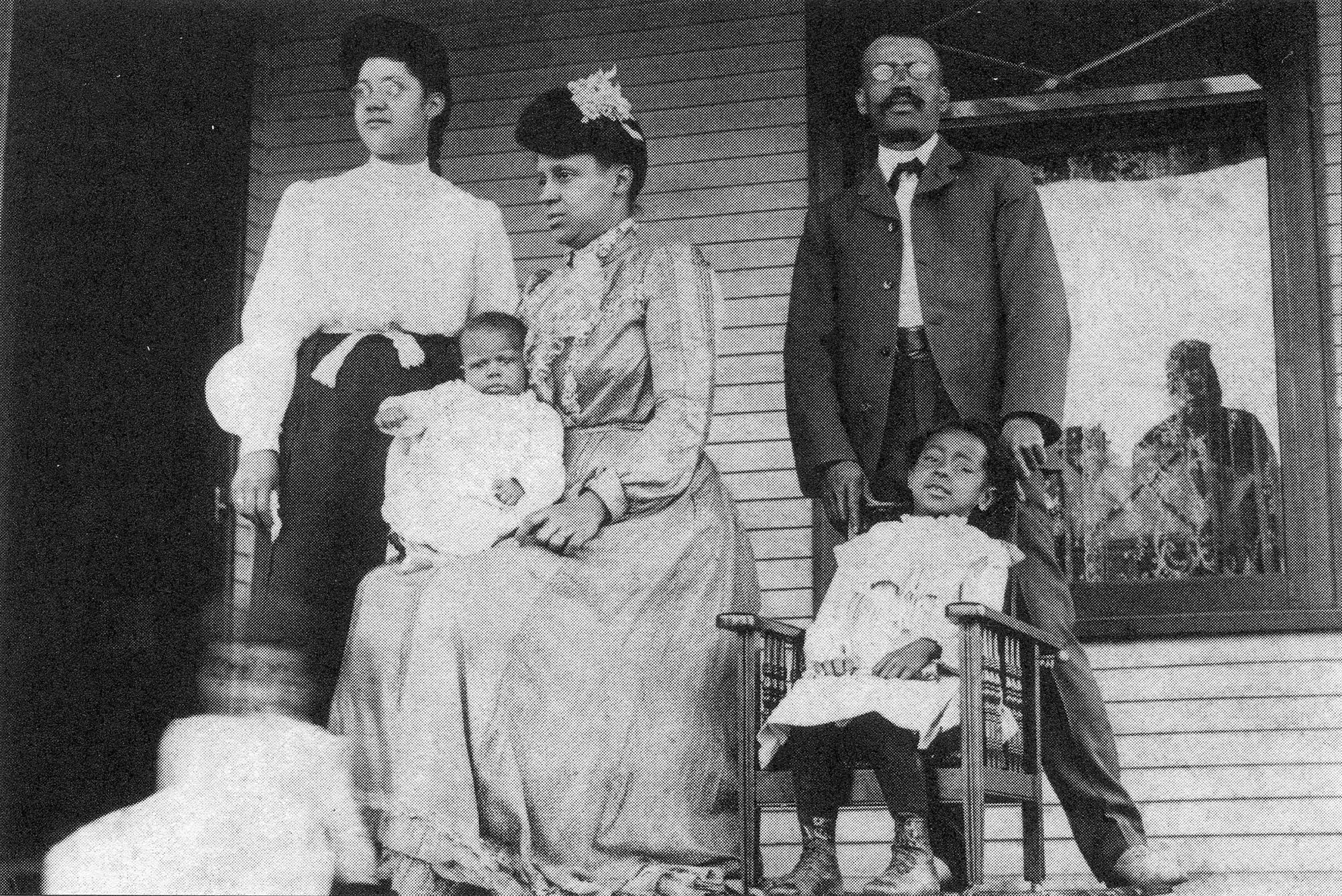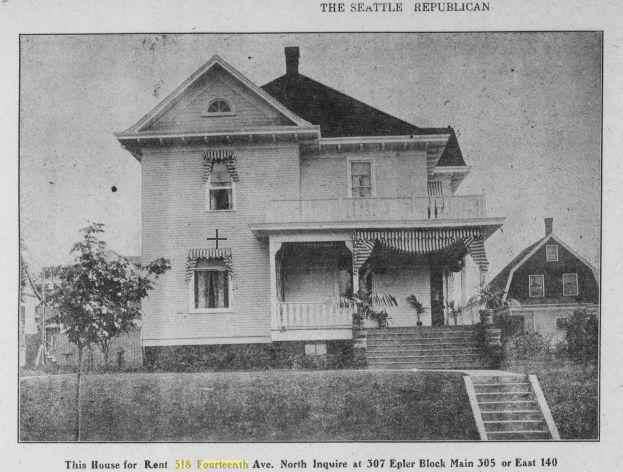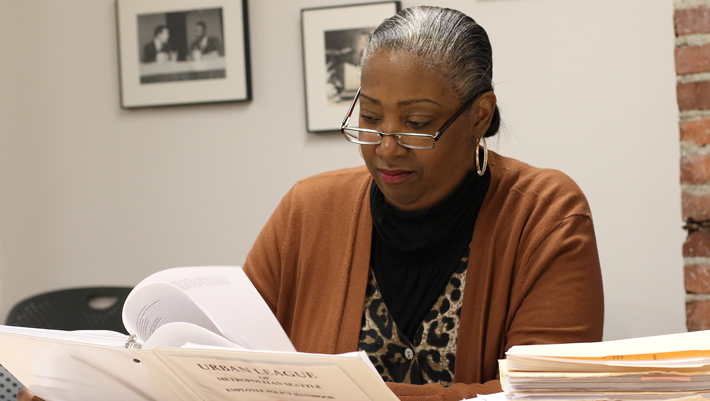
In celebration of Black History Month, we are hosting a series of profiles and stories to amplify and honor people, businesses, organizations, and events connected to the history of Seattle’s Black community.
It is well known that history books are deeply stained with racism and bigotry. This is true across the nation and is no different here in Seattle. That is why so few people have heard of Susie Revels and Horace Cayton.
Horace Cayton was the child of a Mississippi slave and was outspoken about human, political, and civil rights at a young age. He settled in Seattle in 1890 and started the Seattle Republican newspaper. At the time, his newspaper was the second-most read in the city and had a predominately white readership. Cayton used the publication as a place to promote equal rights. He published news about racial injustice, criticized local businesses for excluding Blacks, and challenged racist policing and law enforcement in the city. His stories gave a voice to Black Americans and celebrated milestones and accomplishments of the local Black community.
Susie Revels was the daughter of the first Black United States Senator, Hiram Rhoades Revels. She attended and taught at Rust University in Mississippi and received her degree in nursing at the age of 23. She was impressed by a newspaper being published on the West Coast by one of her father’s former students, Horace Cayton. The two began corresponding and were married in 1896. After moving to Seattle, Susie joined Cayton’s publishing team, becoming one of the first female editors in the city. In addition to writing for the Seattle Republican, she published short stories in many other publications and became an influential leader in spearheading both Black and women’s rights.
The Cayton-Revel family’s success came at a time before Seattle was segregated and redlined. Cayton hoped that his accomplishments would serve as a model for others to show how one could access power through compelling argument and progressive politics. As Seattle grew, however, so did a racist and exclusionary atmosphere. Segregation began to take hold of the city and white readers preferred not to read disturbing stories of heightening racial injustice. When the newspaper covered news of lynchings happening across the nation, subscriptions and advertising began to decline.
“My father and his paper had been the victims of the changing pattern of race relations in the city. . . There was no longer a place for an in-between group, and everyone became identified as either Negro or white. We were, to my knowledge, the only Negro family to feel so dramatically the impact of these social forces, and our fall from our unique position was swift and, for us, painful.” -Horace Cayton Jr. “Long Old Road.” University of Washington Press, 1963.
After the Seattle Republican folded, Cayton launched another publication, specifically for the Black community, called Cayton’s Weekly. Though the family, and accurate accounts of Black history in general, are often left out of Seattle’s historical narrative, the stories and reports from Cayton’s publications serve as instructive historical resources for Washington’s early Black history.
Read more about the life and legacy of the family in this Crosscut article: https://crosscut.com/opinion/2021/02/extraordinary-seattle-legacy-cayton-revels-family.
On February 17, 2021, Seattle’s Landmarks Preservation Board unanimously approved the nomination of the Cayton-Revels House at 518 14th Avenue E as an Historic Landmark.




